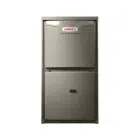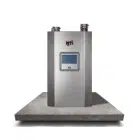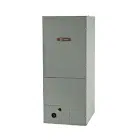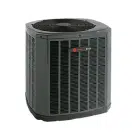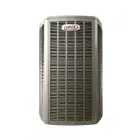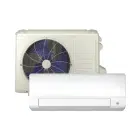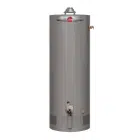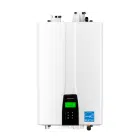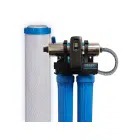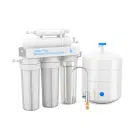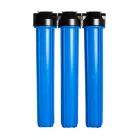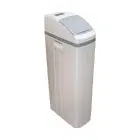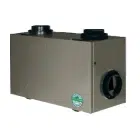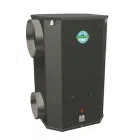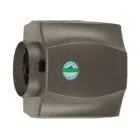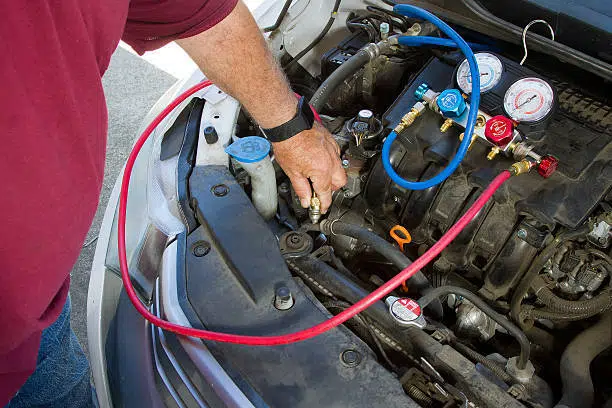
Table of Contents
Picture this: the crisp Canadian winter outside, but inside, your home or business is a warm haven, thanks to the unseen hero — the boiler. Boilers are the beating heart of heating systems, silently working to provide comfort when the mercury plummets. In this guide, we’re about to unravel the mysteries of boilers, understanding not just what they are, but how they orchestrate warmth, making them indispensable in the Great White North.
What Is a Boiler?
A boiler, at the core of efficient heating systems, is a meticulously engineered device tasked with heating water, transforming it into either steam or hot water. Functioning as the silent conductor in the symphony of indoor comfort, boilers operate on the principle of utilizing energy sources such as gas, oil, or electricity. This heated medium is then distributed through radiators, underfloor heating, or baseboard heaters, ensuring a consistent and cozy indoor climate.
Beyond its residential applications, boilers, particularly steam boilers, play a critical role in commercial and industrial settings. They power turbines, facilitate large-scale space heating, and contribute to various industrial processes. Boilers in Canada epitomize adaptability, seamlessly transitioning between different fuel sources and applications. In essence, a boiler is not merely a mechanical apparatus; it is a cornerstone of comfort, providing warmth at home and driving essential processes in diverse industries.
Components of a Boiler
Understanding the intricate mechanisms governing the operation of a boiler involves a closer examination of its constituent components. Much like a finely tuned orchestral arrangement, each element plays a precise role in ensuring the efficiency and reliability of the heating process.
Burner
At the forefront is the burner, serving as the ignition source responsible for the controlled combustion of the selected fuel — whether it be gas, oil, or electricity. This combustion process generates the necessary heat to warm the water or produce steam, setting the thermal foundation for the entire system.
Heat Exchanger
Central to the thermal exchange within the boiler is the heat exchanger. This component facilitates the transfer of the generated heat to the circulating water, a pivotal step in the conversion of energy to warmth. Its efficiency directly influences the overall effectiveness of the heating system.
Control System
Ensuring precision and safety, the control system stands as the orchestrator of the entire process. This sophisticated system regulates various parameters, optimizing performance and safeguarding against potential hazards. Through meticulous monitoring and adjustment, the control system contributes to the seamless and safe operation of the boiler.
Safety Mechanisms
Beyond the fundamental components, boilers integrate safety mechanisms to mitigate risks. Pressure relief valves and temperature controls serve as critical safeguards, preventing excessive pressure and temperature build-up, thereby enhancing the overall safety profile of the system.
Advanced Controls
Modern boilers often incorporate advanced controls, enabling precise adjustments for optimal efficiency. These controls not only contribute to energy conservation but also enhance the adaptability of the system to varying heating demands.
In essence, a boiler is a carefully choreographed interplay of these components, converging to produce the warmth that permeates our living and working environments.
How Boilers Work
Embarking on a journey through the mechanics of boilers reveals the intricate fusion of scientific principles and engineering precision. Let’s unravel the nuanced processes governing their operation.
Fuel Combustion
The process commences with the introduction of fuel, be it gas, oil, or electricity, to the burner. Acting as the ignition source, the burner initiates controlled combustion, generating a substantial amount of heat energy.
Heat Transfer
This heat energy is then channeled to the heat exchanger, a pivotal component within the boiler. The heat exchanger facilitates the transfer of this thermal energy to the water circulating within the system. In steam boilers, this heat transfer results in the production of steam, while in water boilers, it elevates the temperature of the water.
Steam Generation or Water Heating
In steam boilers, the generated steam rises and is directed through pipes to its intended destination, such as radiators or industrial machinery. Conversely, water boilers circulate the heated water through pipes, supplying warmth to various heating elements within a structure.
Distribution System
The heated medium — whether steam or water—is then distributed strategically throughout the building. Radiators, underfloor heating systems, or baseboard heaters serve as conduits for this thermal distribution, ensuring a consistent and comfortable indoor climate.
Thermostat Regulation
The entire process is seamlessly regulated by a thermostat. This device acts as the maestro, allowing users to control and adjust the temperature according to their preferences. When the desired temperature is achieved, the thermostat signals the boiler to modulate its operations, maintaining optimal conditions.
Types of Boilers

Navigating the landscape of boiler diversity, we encounter a range of specialized designs tailored to distinct needs.
Conventional Boilers: These boilers store hot water in a tank, delivering a reliable supply for both heating and domestic use.
System Boilers: Efficiency takes center stage with system boilers, utilizing a sealed system for effective water heating and distribution without the need for a separate tank.
Combi Boilers: Popular for their space-saving design, combi boilers provide hot water on demand without the requirement of an additional storage tank, making them a versatile choice for various applications.
Find more information about the combi boilers in our comprehensive guide via the link below.
https://thehvacservice.ca/understanding-boilers-and-combi-boiler-systems/
Each type boasts unique attributes, reflecting a convergence of efficiency and design to meet diverse residential and commercial heating requirements.
Benefits of Boiler Systems
Boiler systems stand as paragons of efficiency and reliability, offering a multitude of advantages that extend beyond mere warmth provision.
Energy Efficiency
Boilers, particularly modern models, exhibit high energy efficiency, translating to lower utility bills and reduced environmental impact. Their ability to precisely control heating output minimizes energy wastage, contributing to both cost savings and sustainability.
Zoned Heating
Boilers empower zoned heating, allowing users to control temperatures in different areas of a building independently. This not only enhances comfort but also optimizes energy usage by directing heat only where needed.
Longevity and Reliability
Well-maintained boilers boast impressive longevity, often outlasting other heating systems. Their robust construction and fewer moving parts contribute to enhanced reliability, reducing the frequency of repairs and replacements.
Consistent Warmth
The radiant heat distribution facilitated by boilers ensures a consistent and comfortable indoor environment. Unlike forced-air systems that may result in uneven temperatures, boilers provide a steady and even warmth throughout the space.
Minimal Allergen Dispersal
Boilers operate without the need for forced air, minimizing the dispersal of allergens and dust particles. This is particularly beneficial for individuals with respiratory sensitivities, promoting healthier indoor air quality.
Whether for residential dwellings or industrial complexes, the benefits of boiler systems resonate in their ability to deliver sustained warmth while addressing various practical and health-related considerations.
Contact HVAC Service Solutions today, and our professional expats will be happy to help you find the best boiler for your home.
Boiler Efficiency and Maintenance
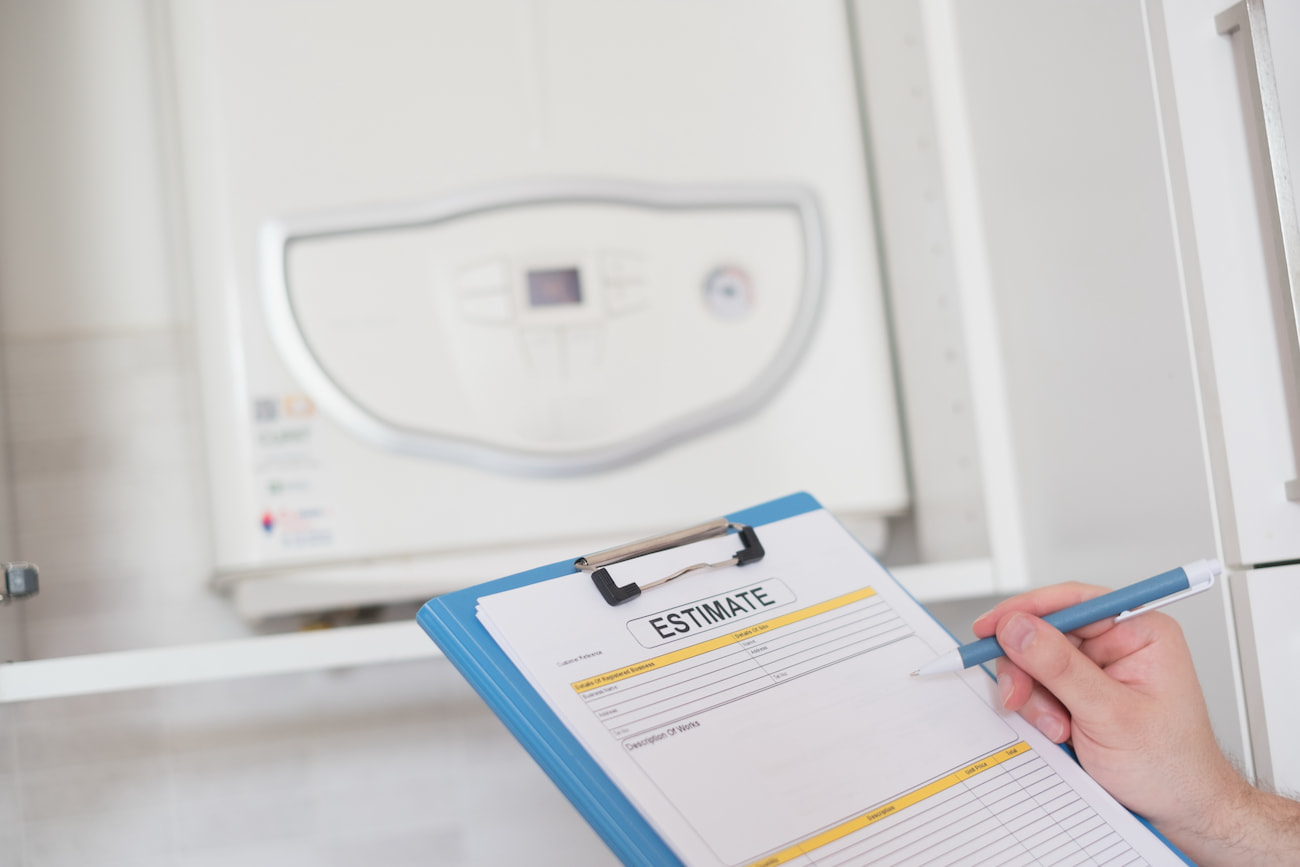
Efficiency and longevity are the hallmarks of a well-maintained boiler system. Regular boiler maintenance, encompassing tasks like cleaning, inspecting, and tuning, is paramount to ensuring optimal performance. Homeowners can contribute significantly by scheduling routine check-ups, monitoring fuel consumption, and promptly addressing any irregularities, thereby extending the lifespan of the system and minimizing energy wastage.
Energy efficiency in boilers is not merely a cost-saving endeavor but also a sustainable practice. Implementing insulation measures, upgrading system components, and investing in modern controls can substantially reduce environmental impact while simultaneously curbing utility expenses. By embracing these practices, you not only contribute to a greener footprint but also ensure that your boiler operates at peak efficiency, delivering consistent warmth in the most resource-efficient manner.
Find out how you can benefit from boiler protection plan in our previous guide.
Are Boilers Suitable for the Canadian Climate?
Boilers excel in efficiently providing consistent warmth even in the harshest Canadian winters, overcoming challenges posed by sub-zero temperatures. Their ability to distribute heat evenly ensures homes and businesses remain comfortably heated.
Boilers demonstrate commendable energy efficiency, crucial in regions where temperatures plummet. Their capacity to maintain high efficiency levels, even in extreme cold, contributes to cost-effectiveness and reliable performance when needed most. In essence, boilers stand as resilient and adaptable heating solutions well-suited to the dynamic demands of the Canadian climate.
Conclusion
In conclusion, boilers emerge as not just heating systems but as vital companions in navigating the diverse and demanding climate of Canada. Their efficiency, adaptability, and resilience make them indispensable contributors to indoor comfort.
For unparalleled expertise in maintaining, optimizing, or installing boiler systems, reach out to HVAC Service Solutions. Our seasoned professionals stand ready to ensure your heating system operates at peak performance, providing the warmth and comfort you deserve. Contact us today to elevate your heating experience and embrace the efficiency of a well-maintained boiler.
Frequent Asked Questions
What is a boiler?
A boiler is a highly engineered device central to efficient heating systems. It heats water, transforming it into steam or hot water, and operates on energy sources such as gas, oil, or electricity. Boilers are pivotal for residential, commercial, and industrial heating, distributing warmth through radiators, underfloor heating, or baseboard heaters.
What are the components of a boiler?
- Burner: Initiates controlled combustion of fuel (gas, oil, or electricity).
- Heat Exchanger: Facilitates the transfer of generated heat to circulating water.
- Control System: Orchestrates the entire process, optimizing performance and ensuring safety.
- Safety Mechanisms: Includes pressure relief valves and temperature controls for enhanced safety.
- Advanced Controls: Modern additions for precise adjustments and energy conservation.
How do boilers work?
Boilers operate through fuel combustion, heat transfer to a heat exchanger, steam generation or water heating, distribution through a system (radiators, underfloor heating), and regulation by a thermostat.
What are the types of boilers?
- Conventional Boilers: Store hot water in a tank for heating and domestic use.
- System Boilers: Utilize a sealed system for efficient water heating and distribution.
- Combi Boilers: Provide hot water on demand without the need for a separate tank, ideal for space-saving.
What are the benefits of boiler systems?
Boiler systems offer high energy efficiency, zoned heating for optimal comfort, impressive longevity, consistent warmth distribution, and minimal allergen dispersal. They contribute to cost savings, sustainability, and healthier indoor air quality.
How can I maintain my boiler?
Regular maintenance, including cleaning, inspecting, and tuning, is crucial for optimal performance. You can contribute by scheduling routine check-ups, monitoring fuel consumption, and adopting insulation measures, system upgrades, and modern controls for energy efficiency.
Are boilers suitable for the Canadian climate?
Yes, boilers excel in providing consistent warmth in harsh Canadian winters. Their even heat distribution and commendable energy efficiency make them resilient and adaptable to extreme cold, ensuring cost-effectiveness and reliable performance.
Why choose boilers?
Boilers are vital heating companions in Canada, offering efficiency, adaptability, and resilience. For expert advice on maintenance, optimization, or installation, contact HVAC Service Solutions to ensure your boiler operates at peak performance.
What is the average cost of a boiler in Canada?
The average cost of a boiler in Canada ranges from $3,000 to $7,500, including installation. Various factors, such as boiler type, size, and additional features, can influence the overall cost. It’s recommended to consult with a professional for a precise estimate based on specific needs and requirements.
Share

